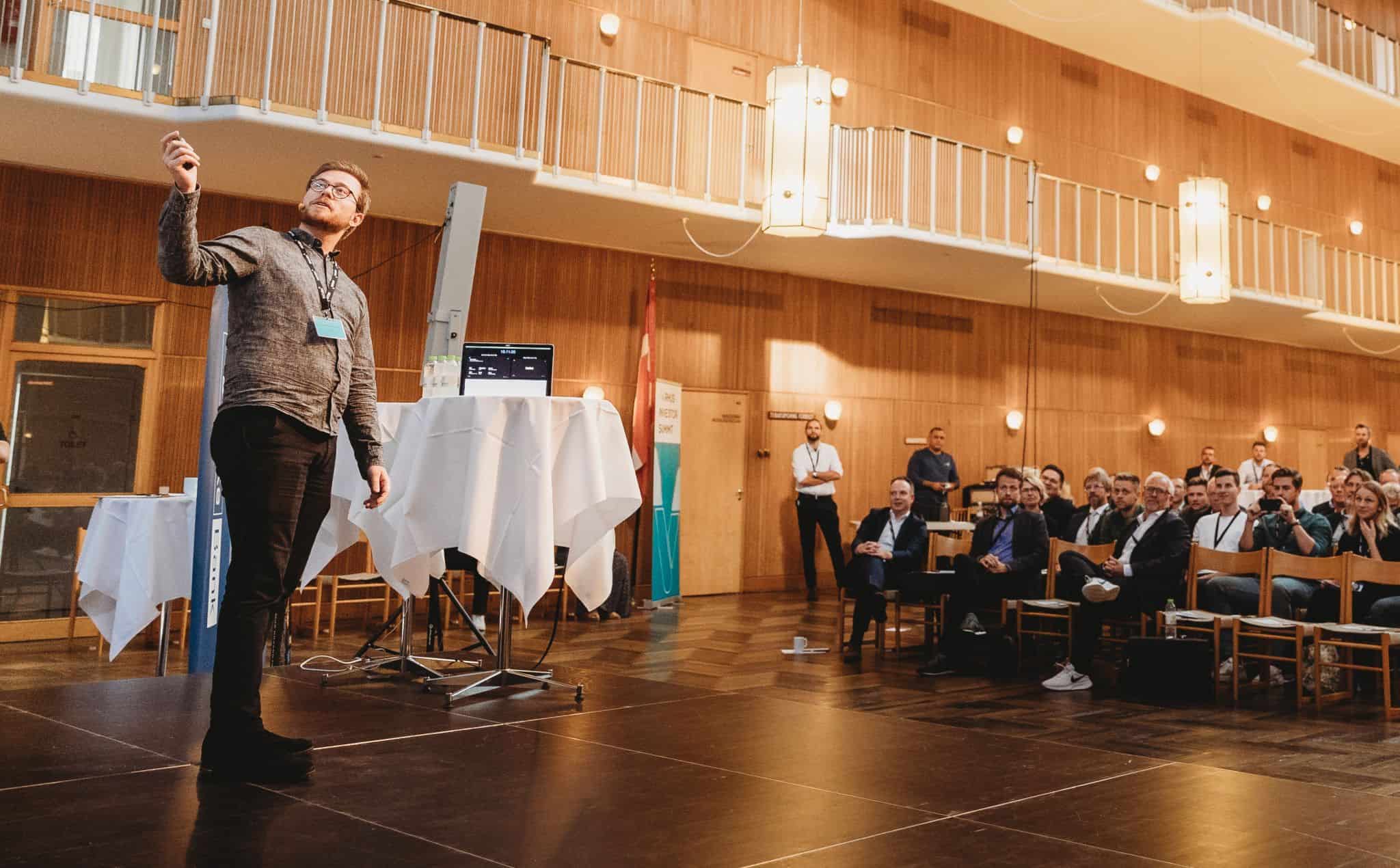Workfeed's CEO Rasmus Skovdal's interview with ITWatch.
Workfeed's CEO, Rasmus Skovdal was recently interviewed by ITWatch for their column 'The IT profile'. Read the full article here in English, or in Danish on
ITWatch's website.
The IT profile: Rasmus Skovdal worked for four years as a waiter in a restaurant before becoming a tech entrepreneur. While solving a problem you've had up close is an advantage, there are some pitfalls as well, he says.
At just 27, Rasmus Skovdal is one of the younger tech entrepreneurs. Nevertheless, he and two co-founders of the scheduling software Workfeed recently raised €1.6 million in an investment round.
This offers opportunities for growth, but not at the expense of health, says Rasmus Skovdal in our Q&A with this week's IT profile. Despite his young age, he has already experienced stress.
How important is it as a tech entrepreneur to try to solve a problem you have experience with?
"All three founders of Workfeed have worked in the restaurant industry. I myself worked as a waiter in a restaurant for four years. That's where we experienced the problems of scheduling for both managers and employees, and we came up with the idea because we saw how bad it was in the real world."
"That said, it's both good and bad to have that knowledge up front. Because it can be a pitfall to put your own set of assumptions over a complicated field. You still have to remember to talk to your audience and users."
How did it feel when your latest investment round raised €1.6 million?
"I was mega happy, we had worked for a long time on the investment. We were also extra happy because the investors we brought in fit in well with the way we do business. We had talked to about 50 different investors when we met David Heinemeier Hansson, who is the lead investor on the round. When that happened, something clicked."
"We share many of the same values. In the startup world, people often celebrate those who work 80 hours a week and aspire to either become a unicorn or go up in smoke. We want to show that you can achieve both human and financial balance. That is why, among other things, we have introduced a 4-day week. David has written several books on the same topics based on his experience creating Basecamp."
Both I and my co-founders have been down with stress. Fortunately, I managed to quit before things got really bad
You've grown from 60 customers by the end of 2020 to about 500 today - what's the most challenging part of that growth?
"The more people who use Workfeed, the more demands there are on the system and ideas for new features. At the same time, we want to keep the product simple and intuitive. It can be hard to balance all those things, and it doesn't get easier with time. Apple has succeeded in this, so it's a great source of design inspiration."
What has been the biggest success in your career?
"I'm not that old yet, but what I want to highlight is that we show it's possible to be an entrepreneur without killing yourself. It hasn't always been like that, and both I and my co-founders have been down with stress. Fortunately, I managed to quit before things got really bad, but that means we've seen the other side of the coin."
And what has been the biggest failure - and what have you learned from it?
"When we started the company, there were five of us in the ownership. We were really diverse, so decision-making was slow and we had a lot of discussions about which way to go. We were also often told that five is too many founders. So it was inevitable to make a break, so at the end of 2019 two of the founders left."
What do you come back to for inspiration?
"I have a saying that is essential to me - bordering on making others roll their eyes when they hear it. It goes: There's nothing you really have to do. There are choices and consequences, but everything you think you should do is often something that exists in your own head. If you just act on autopilot, you forget why you're doing it."
"We want to make it easier for people to do what they love, and people rarely become restaurateurs, taxi drivers or doctors because they love doing scheduling. For example, a study we did showed that managers could save 300 hours a year on scheduling by using our system instead of various Excel sheets. It allows more time for the work that is important to them. So you can't forget the reason why you do what you do."
What is your next career goal?
"We need to spread Workfeed to as many people as possible. We don't have a goal to do a Series A and B funding and then sell the company. We want to make a really good workplace. So my next career goal is my existing job, but to scale it. That's how we make an impact."
ITWatch
The interview was carried out by
ITWatch and the article has been written by Tine Brødegaard Hansen.
